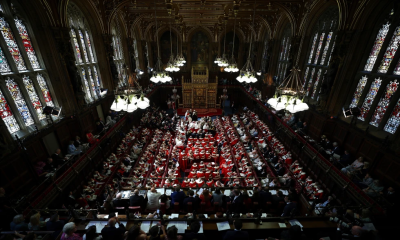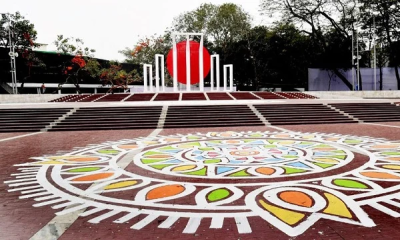The introduction of “unproven" nuclear power technology in the form of SMRs doesn't sit well with environmentalists, who argue that proliferation of small reactors will exacerbate the problem of how to dispose of highly radioactive nuclear waste.
“Unfortunately, Turkey is governed by an incompetent administration that has turned it into a ‘test bed’ for corporations," said Koray Dogan Urbarli, a spokesman for Turkey's Green Party.
“It is giving up the sovereignty of a certain region for at least 100 years for Russia to build a nuclear power plant. This incompetence and lobbying power make Turkey an easy target for SMRs," said Koray, adding that his party eschews technology with an “uncertain future."
Gould said one Rolls-Royce SMR would generate nuclear waste the size of a “tennis court piled 1-meter high” throughout the plant’s 60-year lifetime. He said initially, waste would be stored on site at the U.K. plants and would eventually be transferred to a long-term disposal site selected by the British government.
M.V. Ramana, professor of public policy and global affairs at the University of British Columbia, cites research suggesting there's “no demonstrated way" to ensure nuclear waste stored in what authorities consider to be secure sites won't escape in the future.
The constant heat generated by the waste could alter rock formations where it's stored and allow water seepage, while future mining activities could compromise a nuclear waste site's integrity, said Ramana, who specializes in international security and nuclear energy.
Skeptics also raise the risks of possibly exporting such technology in politically tumultuous regions. Gould said RollsRoyce is “completely compliant” with U.K. and international requirements in exporting its SMR technology “only in territories that are signatories to the necessary international treaties for the peaceful use of nuclear power for energy generation.”
Ramana said, however, there's no guarantee nations will follow the rules.
“Any country acquiring nuclear reactors automatically enhances its capacity to make nuclear weapons," he said, adding that every SMR could produce “around 10 bombs worth of plutonium each year.”
Rolls-Royce SMR could opt to stop supplying fuel and other services to anyone flouting the rules, but “should any country choose to do so, it can simply tell the International Atomic Energy Agency to stop inspections, as Iran has done, for example," Ramana said.
Although spent fuel normally undergoes chemical reprocessing to generate the kind of plutonium used in nuclear weapons, Ramana said such reprocessing technology is widely known and that a very sophisticated reprocessing plant isn't required to produce the amount of plutonium needed for weapons.




-20260220065859.jpeg)
-20260219110716.webp)
-20260219054530.webp)


-20260218060047.jpeg)



-20260221022942.jpg)
-20260221022827.webp)






















